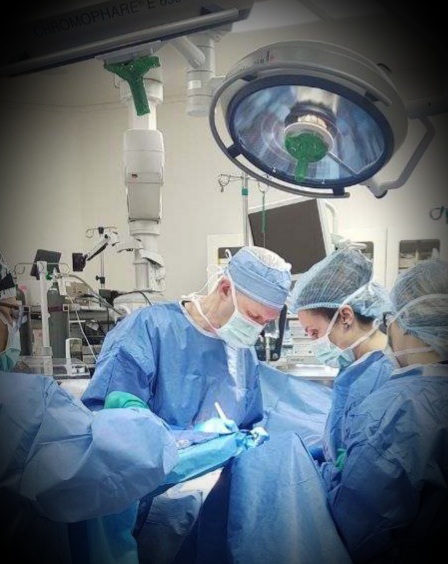Appendectomy
Appendectomy is a common procedure for general surgeons. This is typically done for acute appendicitis. Appendicitis occurs most commonly in the second and third decades of life and has a lifetime incidence of 8.6% in males and 6.7% in females. Most patients with appendicitis present with an onset of abdominal pain that starts off vaguely but localizes to the right lower quadrant. Patients may experience nausea and vomiting and malaise. Most times, the pain becomes severe enough that patients seek medical care in the emergency department or a walk-in clinic. During that visit, a CT scan may be performed to confirm the suspicion of appendicitis.
What should I expect for surgery?
An appendectomy is typically performed laparoscopically with three small incisions. The appendix is removed from the base of the cecum (first part of the large intestine or colon). The appendix is placed in a bag within the abdomen to prevent spreading infection to the abdomen or abdominal incisions. The incisions are closed with absorbable sutures. The surgery typically can be done in 30 minutes to 1 hour. Most patients feel much less pain after surgery than they did before surgery despite the incisions and surgery. Only if you have complicated appendicitis with a perforation or abscess would your stay be longer or require prolonged antibiotics. Most patients have a low chance of complications.
What will my recovery be like?
Following surgery, most patients are discharged within 30 minutes to 12 hours after surgery. Some require an overnight admission due to the time of day of the surgery. Routine discharge instructions are sent home providing instructions for wound care, diet, activity and medication instructions. Pain medications are electronically prescribed to your pharmacy. Usually, patients have a mild degree of pain for the first few days and resolves completely in the first 1-2 weeks. Patients usually take a few days off from work to recover from surgery. Dr. Biggs will see you back in the office about 2 weeks after surgery to make sure you have fully recovered from your surgery.
Is surgery required if I have appendicitis?
Until recently, almost all cases of appendicitis were managed with surgery. Recently, there has been literature that supports medical treatment of appendicitis as a non-inferior treatment. This requires several days to weeks of antibiotics, admission to the hospital, and close observance for worsening of symptoms. Unfortunately, medical management of appendicitis fails in 30% of these patients, thus requiring an appendectomy for resolution of illness.

“A CT Scan may be performed to confirm the suspicion of appendicitis.”
Kind words from our patients
“Excellent care and follow up. Dr. Biggs explains procedures well and ensures that there are no unanswered questions. It was refreshing to have a surgeon who really cares about his patients.”
– Dean
Contact Us
Office
Dr Rodney Biggs MD
530 Running W Dr Ste 120
Gillette, WY 82718
Office Hours
Mon-Thu: 8:30am – 4:30pm
Fri: 8:30am – 12:00pm
Sat & Sun: Closed
